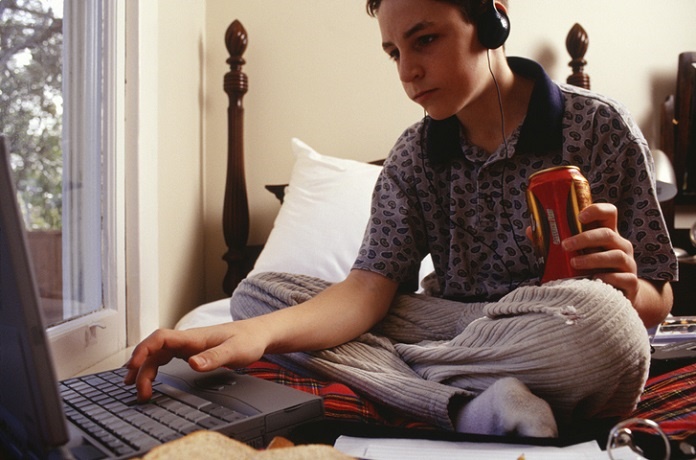
We're right in the thick of exam season, and like most students, your child may be turning to energy drinks to stay in the zone.
But if the already well-documented effects of consuming high levels of sugar and caffeine aren't enough to scare parents into at least putting a restriction on how many of these drinks children are allowed to drink per week, then maybe this episode of What's Really In Our Food? will.
What's Really In Our Food? probes what's lurking in the food and drinks stacking the food isles, with this particular episode exposing some unpleasant truths about how bad energy drinks really are.
In a country where the sale of energy drinks is on a steady incline, SA parents have cause for concern.
"Across beverage categories, energy drinks have achieved the highest recent sales volume growth in South Africa," warns a 2017 South African study which analysed just how popular energy drinks are in SA.
Granted, the amount of caffeine in the average energy drink – 30 mg per 100 ml – does not exceed that of a standard cup of coffee, the problem is how much of the stuff kids end up drinking.
"A lot of young people are drinking energy drinks almost continually throughout the day," said interviewee, Professor Robert Hughes of the University of Canterbury.
What are your rules around your children consuming caffeinated energy drinks? Tell us by emailing to chatback@parent24.com and we could publish your letter. Do let us know if you'd like to stay anonymous.
South African males are the biggest consumers
In SA, the marketing of energy drinks "has been focused generally on [television] channels with a younger and more male audience" and young, affluent males are the products biggest consumers.
And it just so happens that caffeine is more likely to negatively impact young males.
These drinks energise children in a dangerous way, only to end up doing the opposite of what they're intended for, with side effects from reckless behaviour to extreme fatigue.
"Caffeine doesn't react very well with an adolescent's immature central nervous system. [Teens] find it very difficult to get to sleep and hard to wake up in the morning," advises Dr Nicholas Gant of the University of Auckland.
"There would be a tendency for impulsiveness, explosive behaviour... a strong predisposition for reckless behaviour," says Professor Hughes.
The episode also flags a US study which found that risky behaviour was associated with high levels of energy drink consumption.
- Also see: Earlier bedtime happier teens
No limits
In South Africa, the law stipulates that energy drink products containing more than 150mg per litre must be clearly labelled as “high caffeine content”, but there is no law limiting the amount of caffeine manufacturers are allowed to put in their drinks.
And with no particular stipulations around how this label is presented, consumers may not be aware the warning exists, since there are "no colour- or type-setting restrictions, [which allows] producers to obscure this warning from potential buyers through careful package design."
Sweet poison: no more than 6 teaspoons per day!
While caffeine poses one threat, sugar poses another.
"The high energy is really just referring to a lot of high sugar in the product, so at the end of the day they're not going to say it's a high sugar drink... high energy sounds a whole lot better," comments consumer rights expert, Belinda Allan.
The episode reveals that consumers are getting up to 16 teaspoons of sugar per drink, an amount far exceeding the recommended dose for children.
According to the WHO, poor diet and insufficient physical activity is at the heart of deaths by heart attack, stroke, cancer, and diabetes, and recommends a maximum of 6 teaspoons of sugar per day for children.
Another important factor raised in episode is that the body is less able to detect sugar when it comes in liquid form.
"The appetite centres in the brain do not recognise those liquid calories in sugar," says Professor Jim Mann of the University of Otago.
This places them at risk of putting on excessive weight, which may lead to life-threatening conditions later on, including diabetes and cancer.
A lose-lose situation all round, it would seem.
What are your rules around your children consuming energy drinks? Tell us by emailing to chatback@parent24.com and we could publish your letter. Do let us know if you'd like to stay anonymous.
Read more:
Sign up for our weekly newsletter to receive Parent24 stories directly to your inbox.




 Publications
Publications
 Partners
Partners














